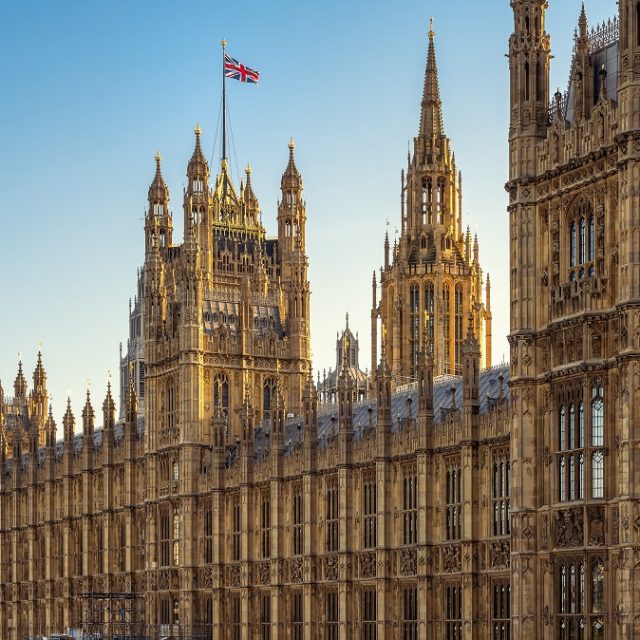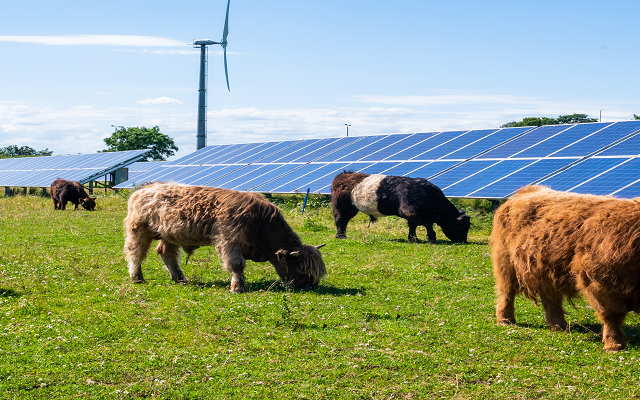Land Business Update | Week Commencing 13th November 2023
Farming
Basic Payment statements and delinking
Basic Payment claimants should receive a statement of how their delinked payments for 2024 to 2027 have been calculated by the RPA. The calculation is based on the payments they received in 2020, 2021 and 2022, if they made a claim in 2023. Please contact your local S&P farming team if you would like them to check that the calculation is correct. The process for transferring delinked payments to another party is not yet available.
Environment
Government is now legally required to assess impact of policy on nature, pollution and waste
The Environmental Principles Policy Statement, which is a requirement under the Environment Act, was implemented on 1st November. It is the fourth and final element of the new environmental governance system; the other parts are legally binding targets, the Environmental Improvement Plan and oversight by the (newish) Office for Environmental Protection. The Statement requires the government to integrate five environmental principles in the design and implementation of all new policies:
- Integration principle, which means that environmental protection should be integrated into the making of policies.
- Prevention principle, which means that it is better for damage to be prevented in the first instance.
- Rectification of environmental damage at source principle, to avoid the need to remedy its effects later.
- Polluter Pays principle, which means that the costs of pollution should be borne by those causing it, where possible.
- Precautionary principle, which means postponing policy decisions until sufficient evidence is available, if necessary.
The Statement has been welcomed by the Office for Environmental Protection as putting the environment at the heart of all relevant policymaking. In January, the OEP warned that the government was not on track to meet any of the 23 environmental targets it assessed. Environmental organisations will watch carefully how the new governance system is being implemented. Government departments were given until 1st November 2023 to prepare their implementation plans.
Restoring ‘ghost’ ponds
This interesting project is using old maps to identify and then restore ponds that were filled in over the past two centuries. Once they are dug out again, the seeds from Victorian times soon colonise the ponds and they are full of water, plants and animals within a year. Restoration can be done anywhere but the Norfolk Ponds Project has produced a downloadable guide on how to restore ponds. Get digging!
European drought risk atlas maps out drought risks
The Atlas uses an innovative approach to assess and map the complex characteristics of drought hazards for various sectors (including crop production, public water supply and ecosystems) under current conditions and projected climate scenarios of +1.5°C, +2°C, +3°C. The Atlas found that current levels of droughts are high, therefore posing economic and environmental threats.
Local Nature Recovery Strategies – local authorities start work so get involved
Local authorities, of which 48 are the ‘responsible authorities’ for preparing LNRSs for their areas, are now starting the process of producing their Strategies within the next 12-18 months. They are required to engage with local organisations and carry out a public consultation as part of strategy preparation. The government’s intention is that land managers take part in the development and delivery of LNRSs so, if you are interested, contact your local authority to ensure you can be involved.
Forestry
Woodland maintenance payments extended under England Woodland Creation Offer and Countryside Stewardship
The number of years that maintenance payments will be paid for new woodlands has been increased from 10 years to 15 years. Also, capital works can now take place over 3 years (previously two), and so will now cover two whole planting seasons. NB Countryside Stewardship agreements will automatically be amended to include 15 years of maintenance payments.
Property and economy
UK Economic and Real Estate Briefing
Key points from the BNP Paribas Real Estate team’s latest economic briefing are:
- As economic activity weakens, we maintain the view that the Bank of England will look to hold interest rates close to current levels until mid-2024.
- Real GDP rose by just 0.2% month-to-month in August, with weak retail sales data suggesting consumer resilience is fading.
- Wage growth and inflation remain elevated, but forward-looking indicators support our view that the full impact of restrictive monetary policy is beginning to feed through.
- UK commercial real estate investment volume in the 12 months to the end of Q3 2023 was the lowest four-quarter total since 2012.
- Office investment activity is at record lows, but demand for logistics and living sector assets remains far above pre-pandemic levels.
Levelling-up and Regeneration Act 2023 receives Royal Assent
This large and controversial Act has finally been passed and introduces a wide range of new powers, which will be introduced over a number of years:
- It introduces levelling-up missions, to try to reduce economic disparities between regions. These include allowing every area in England to have a devolution deal.
- It creates a new form of devolved local government called a County Combined Authority. It also creates new powers for Combined Authorities.
- Introduces a new Infrastructure Levy and alters the existing Community Infrastructure Levy.
- A number of changes to the planning system, including the introduction of National Development Management Policies, which give central government powers to overrule local authorities.
- A pilot programme for Community Land Auctions, which are designed to encourage more development.
- Registration of short-term rental properties.
- A review of open access mapping under the Countryside and Rights of Way Act 2000.
Before it was passed, the Bill was used to try to pass a wide range of policies, including the government’s attempt to remove nutrient neutrality requirements for new homes, which was rejected by the House of Lords.
The King’s Speech, land, animals and property
There are a number of Bills and commitments in the speech, which outlines the legislative programme for the next year, that concern land use. Not all of these proposals have to be passed and the government can also add new proposals to its list:
- The government has not committed to a timetable on how it will protect hedgerows once the cross-compliance measures under previous EU policy no longer apply.
- It is also unclear what process the government will use to deliver ‘a clear target on storm overflow reduction’ to improve water quality.
- Animal welfare measures will be taken forward as single bills, rather than in the single one first introduced in the 2021–22 session. This includes banning live exports for fattening and slaughter and on livestock worrying.
- The Renters (Reform) Bill is expected to be given time to be passed this parliament although some of the reforms, such as abolishing no-fault evictions, will be delayed until court processes are ‘fit for purpose’.






